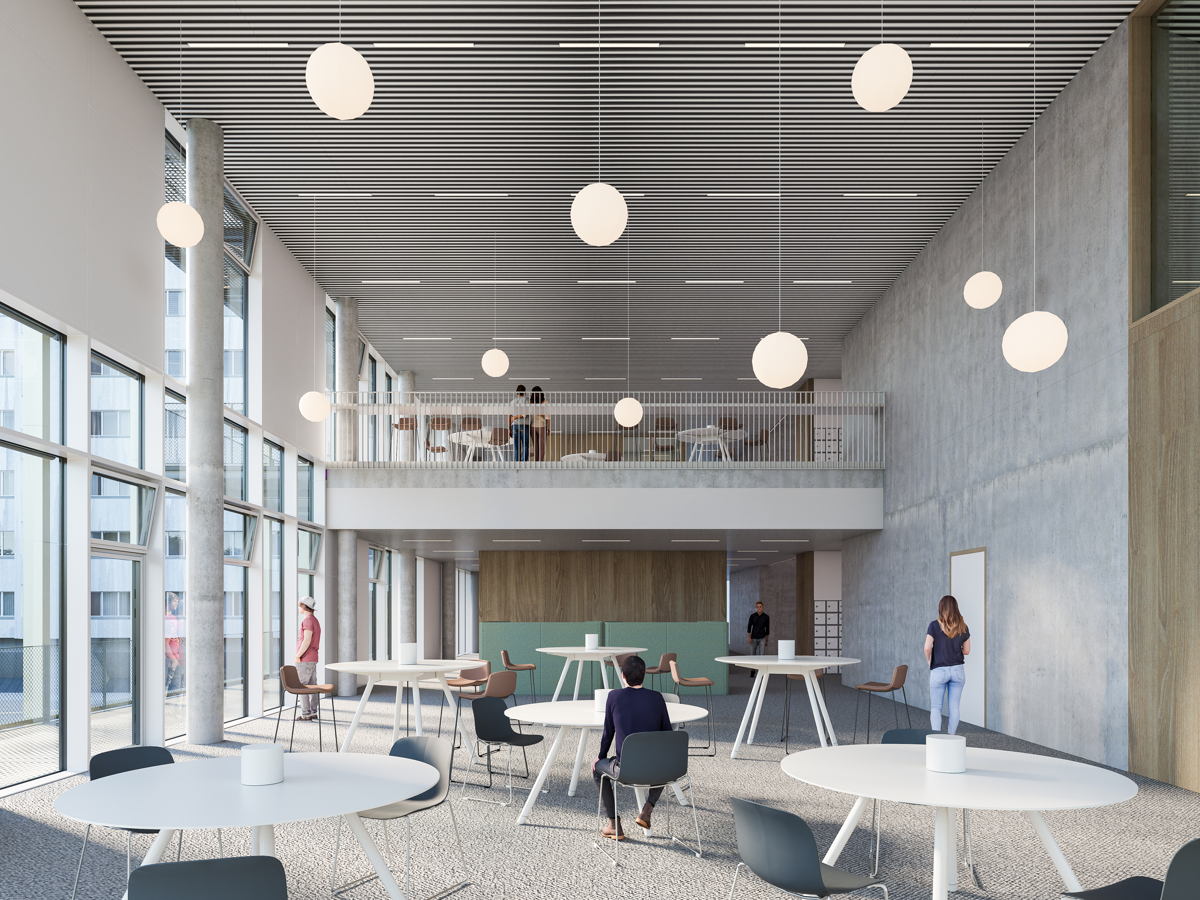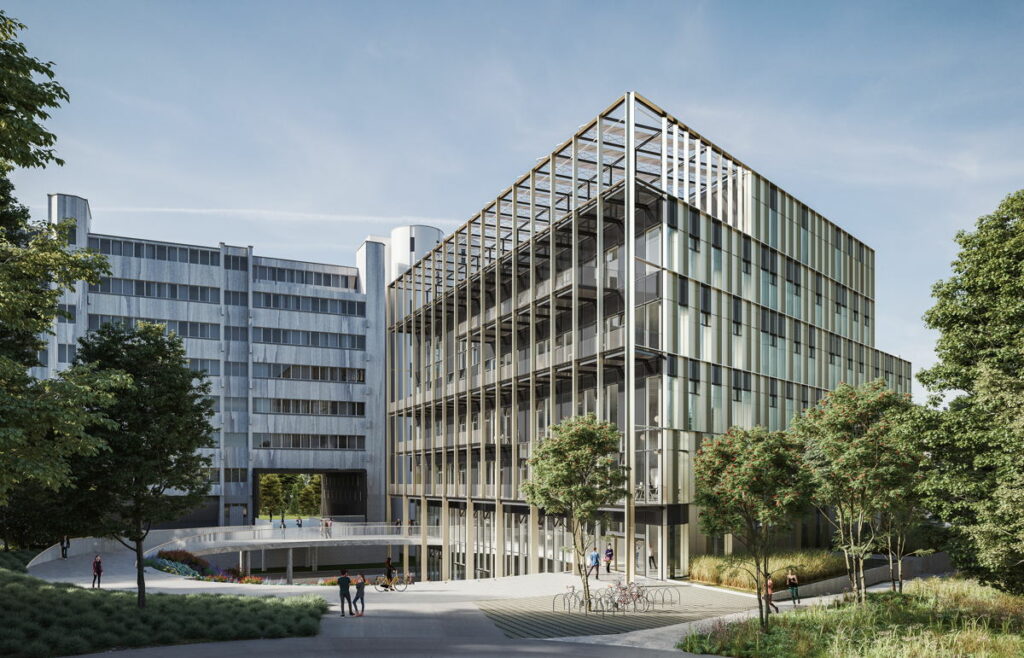The construction of a 'futuristic' and sustainable university building for both universities of Brussels – the French-speaking ULB and Dutch-speaking VUB – started on Tuesday, with project also aiming to build a bridge between their campuses.
Beliris, the public building expert for Brussels, started the construction of the Learning and Innovation Centre (LIC) in Etterbeek, which will offer various learning environments, from individual study rooms to experimentation centres with high-tech equipment integrated into the infrastructure.
"Brussels is a rich region with many assets in terms of culture, heritage, art and science. A project such as the LIC is an absolute enrichment for Brussels as a student city, as an academic and scientific pole, but also as a place of knowledge and exchange," Karine Lalieux, Minister of Pensions and Social Integration, in charge of Beliris, said.

Inside the LIC building. Credit: Boco Studio
The LIC, which is expected to be a location in the Belgian capital where research, exchange and training are brought together, and will be a near-zero energy building entirely constructed from sustainable materials. Energy consumption will also be optimised by sensors, according to a VUB press release.
Building literal bridges
The eight-floor building will be able to hold one thousand people in total, 80% of whom will be students, 10% academic staff and 10% external visitors.
"Innovation today means that learning goes hand in hand with open collaboration between students, scientists and entrepreneurs. State of the art technology is crucial in this," Jan Danckaert, ad-interim rector of the VUB, said.
Related News
- Flanders gives green light for first university degree in artificial intelligence
- 60 rooms, 500 students: University living in Belgium rare and unaffordable
"The LIC is the symbol and a very concrete element of the inter-university and inter-community cooperation ULB-VUB. It builds bridges: between our two universities and the challenges of the world around them," Annemie Schaus, Rector of ULB, added.
The works are expected to be finalised in 2.5 years.

